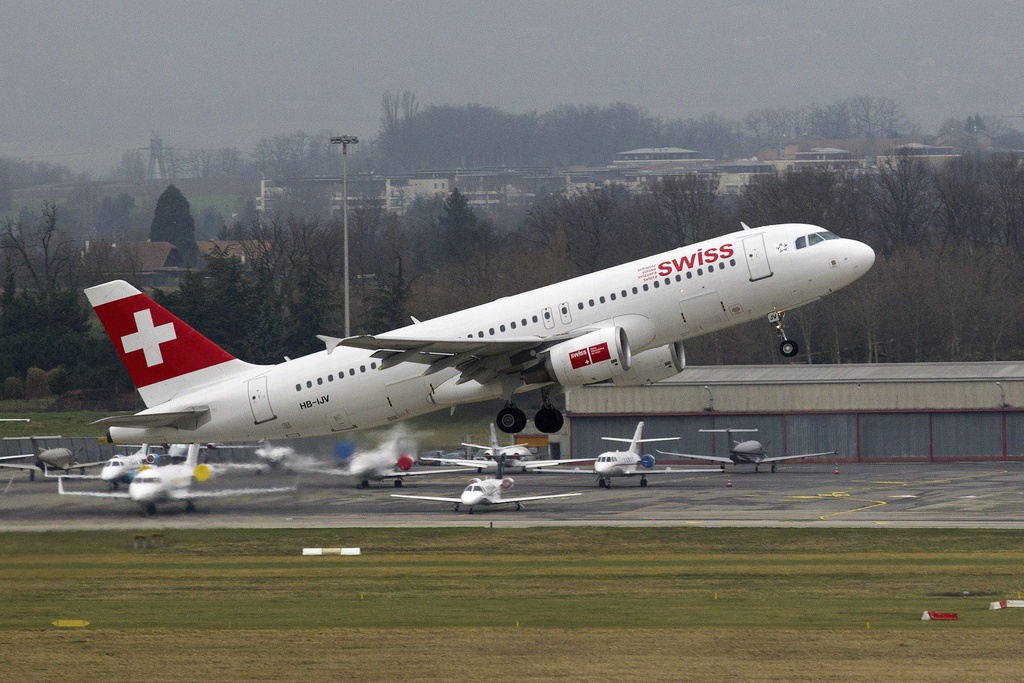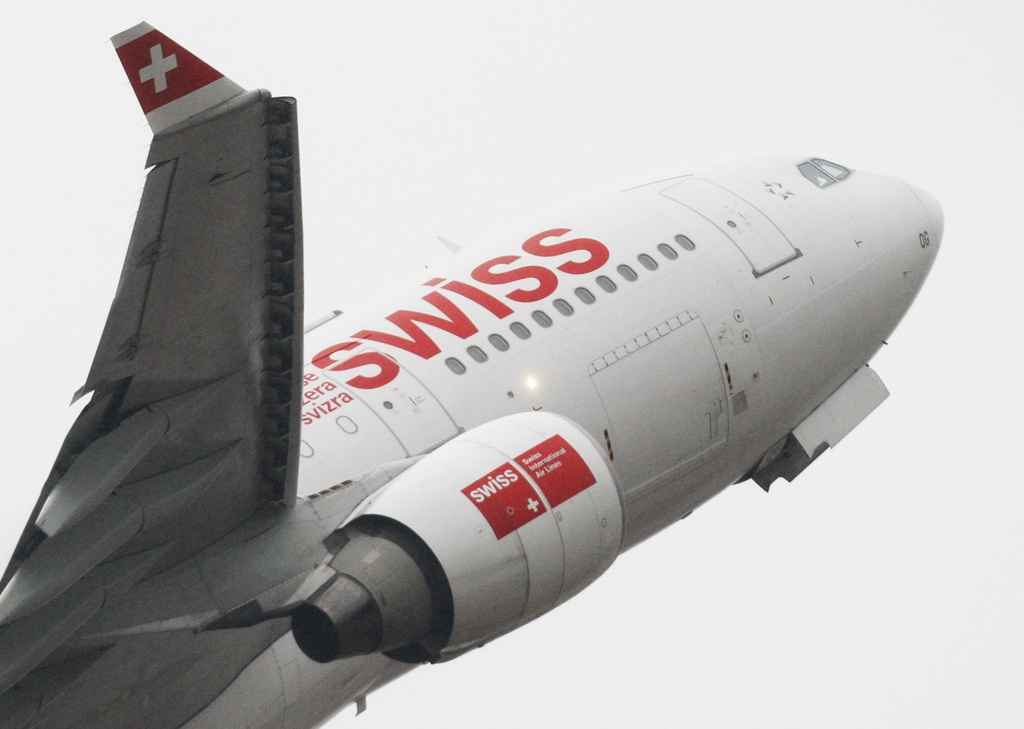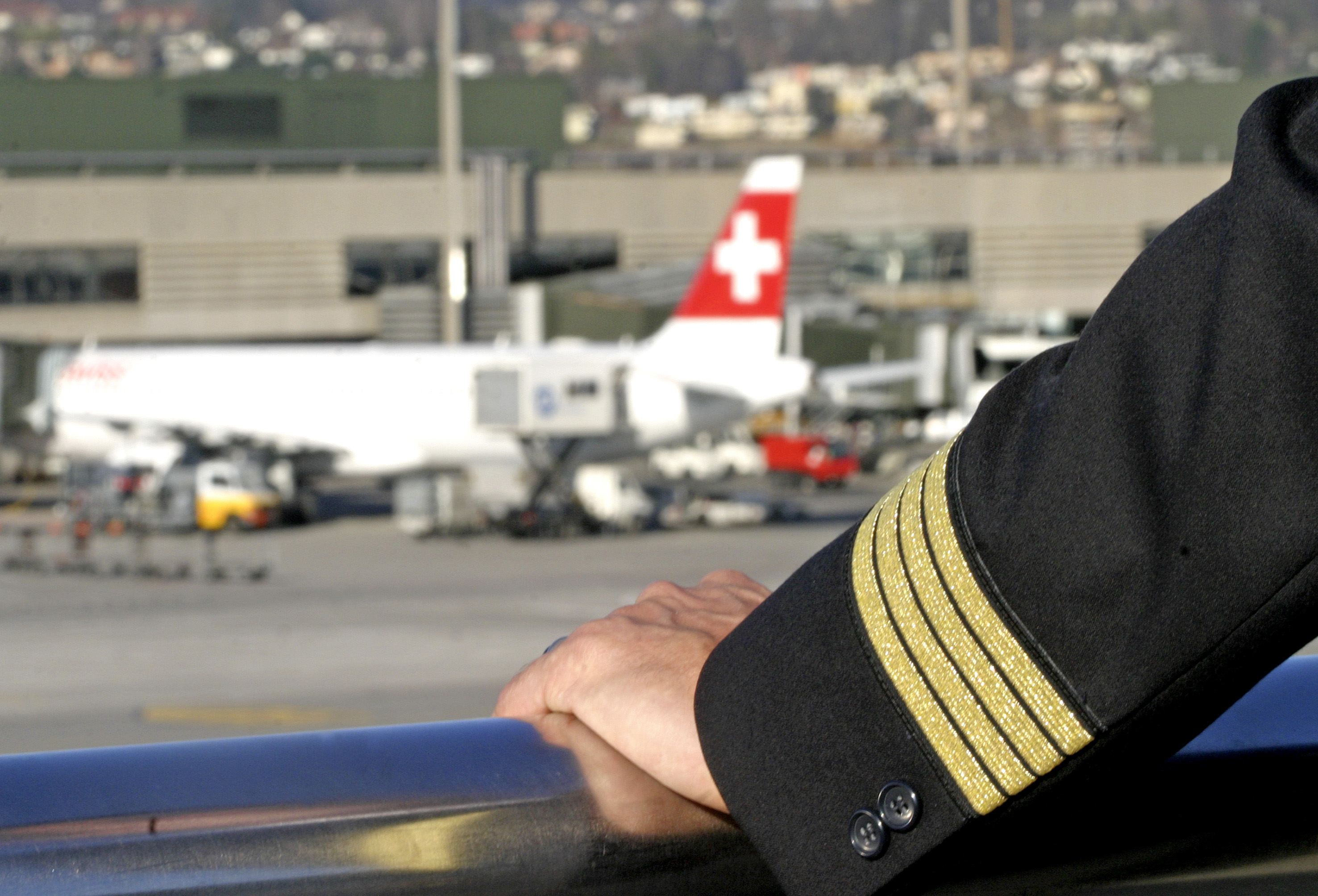Swiss airline raises fares and tightens belt

Raising ticket and fuel surcharge prices and reshuffling ground staff are some of the measures being considered by Swiss International Air Lines to stave off tough competition and ever rising costs.
Despite being the star performer of the Lufthansa Group, the Swiss carrier has been ordered by its German owners to save SFr100 million ($107 million) by 2015.
The efficiency drive is part of an ambitious €1.5 billion (SFr1.8 billion, $1.9 billion) cost saving programme – called Synergies, Costs, Organisation, Revenue, Execution (SCORE) – announced by Lufthansa earlier this year.
The reasons for the cost savings are obvious: Swiss enjoyed a stellar year in 2011 when it booked a SFr306 million ($327) operating profit. But this impressive figure still fell 17 per cent below the 2010 figure while the first quarter of this year saw a SFr4 million loss.
The main culprit was fuel price inflation, but extra costs are also on the horizon in the shape of a new European Union emissions trading charge that is expected to hit the airline with an additional SFr90 million bill this year, according to observers.
Leaner machine
Swiss has yet to announce definite plans to meet its target but its options are limited. Having been born from the ashes of bankrupt former carrier Swissair in 2002, Swiss was forced to further tighten its belt after being bailed out and taken over by Lufthansa in 2005.
Unusually for a company based in high price Switzerland, Swiss typically pays its staff less than its German parent company, particularly its pilots.
But clues about how Swiss intends to increase operational efficiency have been leaking out in the last few weeks.
Passengers will be asked to shoulder some of the burden through an increase in some fares and a hike in fuel surcharges.
Swiss chief executive Harry Hohmeister said in a recent newspaper interview that lower fares could not be maintained as the increased costs of fuel made 2011 the “most expensive year we have ever experienced.”
“The whole airline industry is earning practically nothing and is hemmed in on all sides,” he told the NZZ am Sonntag newspaper in March. “Swiss is perhaps in a tighter situation because we also have to bear the brunt of the strong franc.”
“We have to make passengers realise that if they have to spend an extra SFr50 francs to drive their cars 1,000 kilometers than before, they cannot expect a 1,000 km flight to be any different.”
Cheap air fare era expiring
Andreas Wittmer of the Center for Aviation Competence at the University of St Gallen believes that the era of easily affordable flights – driven by low cost airlines – may be drawing to an end.
Already this year, airlines in Spain and Hungary (Spanair and Malev) have declared bankruptcy while others are on shaky ground.
“The strategy of continuously dropping air fares is unsustainable. European airlines simply have to increase revenues in order to survive,” he told swissinfo.ch.
“The average prices people pay for flights are unrealistically low. There will come a time when air travel will become more expensive again.”
With that in mind, Wittmer approves of the Swiss strategy of particularly targeting the high end consumer market. This emphasis on quality was reinforced with a rebranding exercise last year.
Backed to make profit
Increasing fares should go some of the way, but Wittmer sees limited scope for such a lean business to meet its SFr100 million improved operational performance target through savings.
The airline has other ideas: it still plans to expand its fleet and take on 500 new staff this year, but none will be appointed to senior positions while consultancy fees will be slashed.
Some Zurich-based ground staff – in the areas of procurement, finance and human relations – may also be switched to Frankfurt to serve the whole Lufthansa Group as part of the efficiency drive.
And plans are underway to make certain routes more efficient, by using different aircraft for example.
The reduction Swiss has been ordered to achieve is not so high that it will prove too much of a burden, Wittmer thinks.
“On the face of it SFr100 million seems tough, but it should not make a dramatic impact on a business with a SFr5 billion turnover,” he said. “There is still growth in some areas of the world so it is probably a reasonable target.”
“I still think that Swiss can make an end of year profit. From a shaky start, Swiss has become the cash cow of the Lufthansa Group.”
Swiss International Air Lines was born in 2002 from the remains of bankrupt Swissair and the regional carrier Crossair.
Having been forced to cut its fleet (to 74) and staff by a third a year later, the struggling Swiss was saved by Lufthansa in 2005.
Lufthansa initially bought an 11% stake in Swiss in March 2005 and increased this share to 49% in 2006 once regulatory approval had been granted. It took over all the shares in July 2007.
Swiss recorded its first full year profit in 2006 and ended 2011 with an operating profit of SFr306 million (SFr368 million in 2010).
With fuel prices soaring and additional costs stacking up, Swiss announced a disappointing SFr4 million operating loss in the first quarter of 2012 (compared to a SFr16 million profit in the same period last year).
Swiss operates a fleet of 90 aircraft flying to 70 destinations in 37 countries. As of the end of 2011, it employed 7,644 staff.
At the beginning of 2012, Lufthansa Group announced its Synergies, Costs, Organisation, Revenue, Execution (SCORE) program.
The aim of the scheme is to improve group operational performance by €1.5 billion (SFr1.8 billion, $1.9 billion) by 2015.
One third of the target is to be met by reducing staff costs (Lufthansa will lose 3,500 jobs). The remainder will be covered by lowering administration costs, reorganising routes, improving code sharing agreements and other measures.
Swiss has been ordered to improve its financial performance by SFr100 million by 2015.
Staff cuts appear off the agenda as the airline moves ahead with plans to hire an extra 500 people this year. New aircraft are also being added to its fleet.
The Lufthansa Group will sell its loss making subsidiary BMI to the International Airlines Group – owners of British Airways – subject to regulatory approval.
Earlier this week Lufthansa announced 222 job losses from its 304 technical support staff based in Basel.

In compliance with the JTI standards
More: SWI swissinfo.ch certified by the Journalism Trust Initiative













You can find an overview of ongoing debates with our journalists here . Please join us!
If you want to start a conversation about a topic raised in this article or want to report factual errors, email us at english@swissinfo.ch.